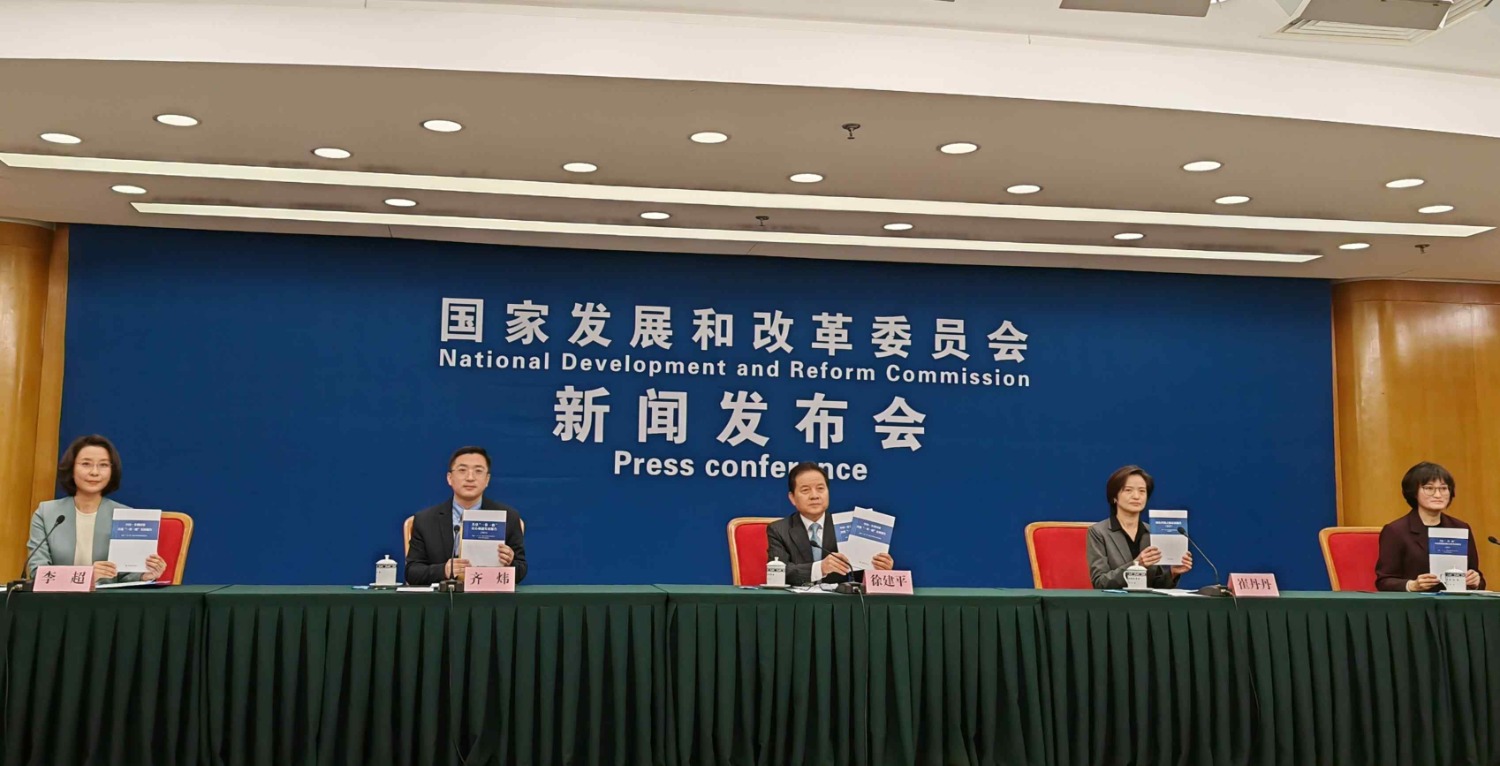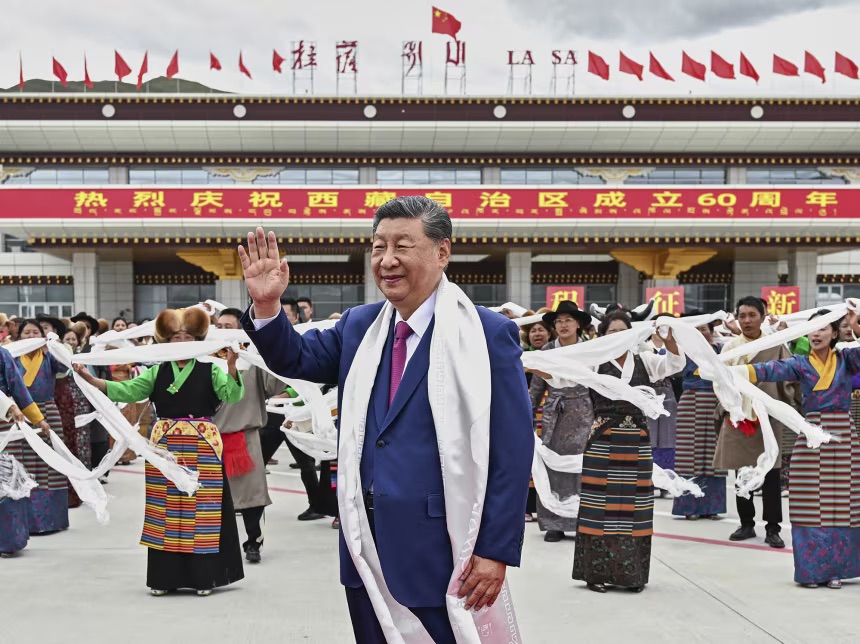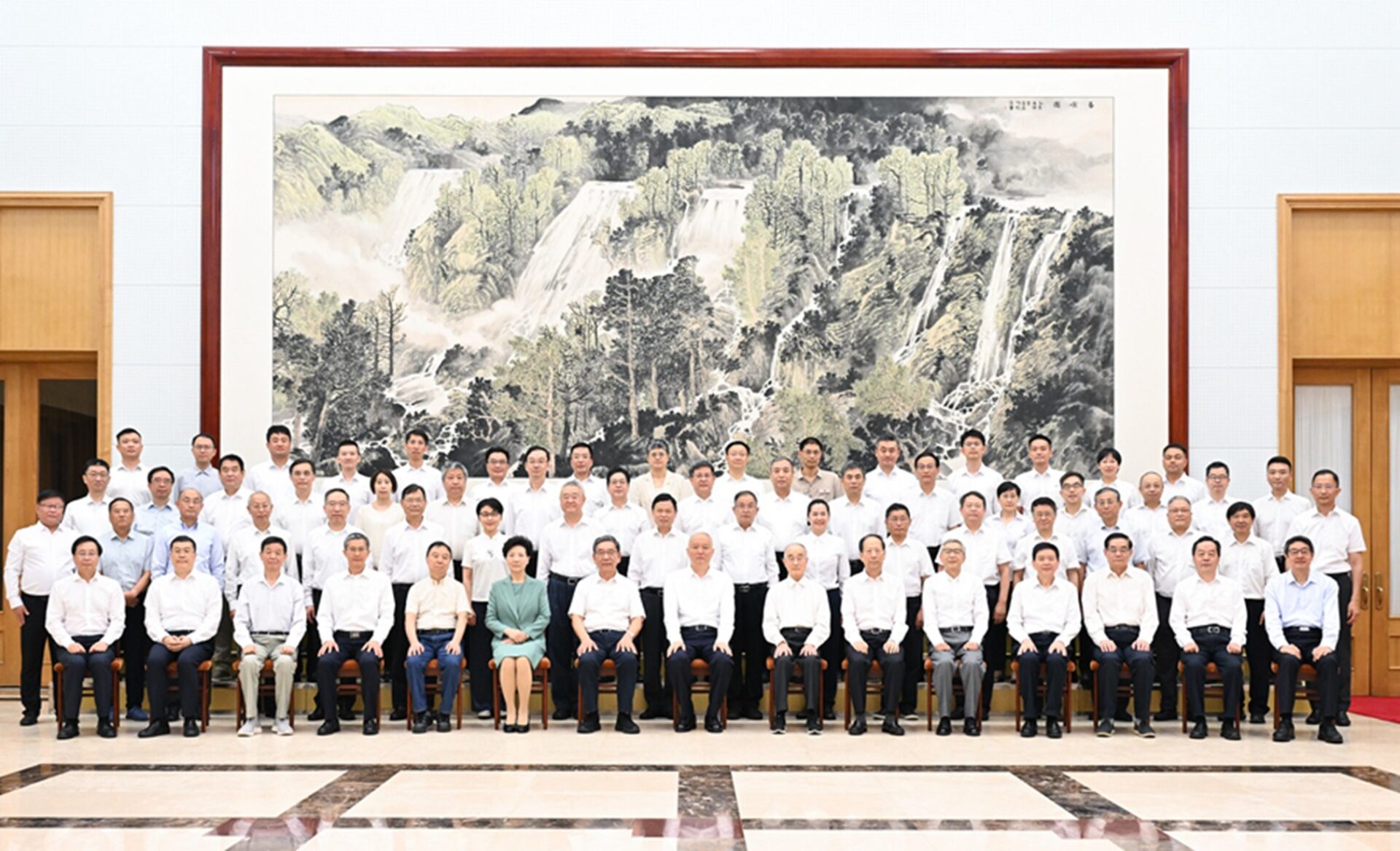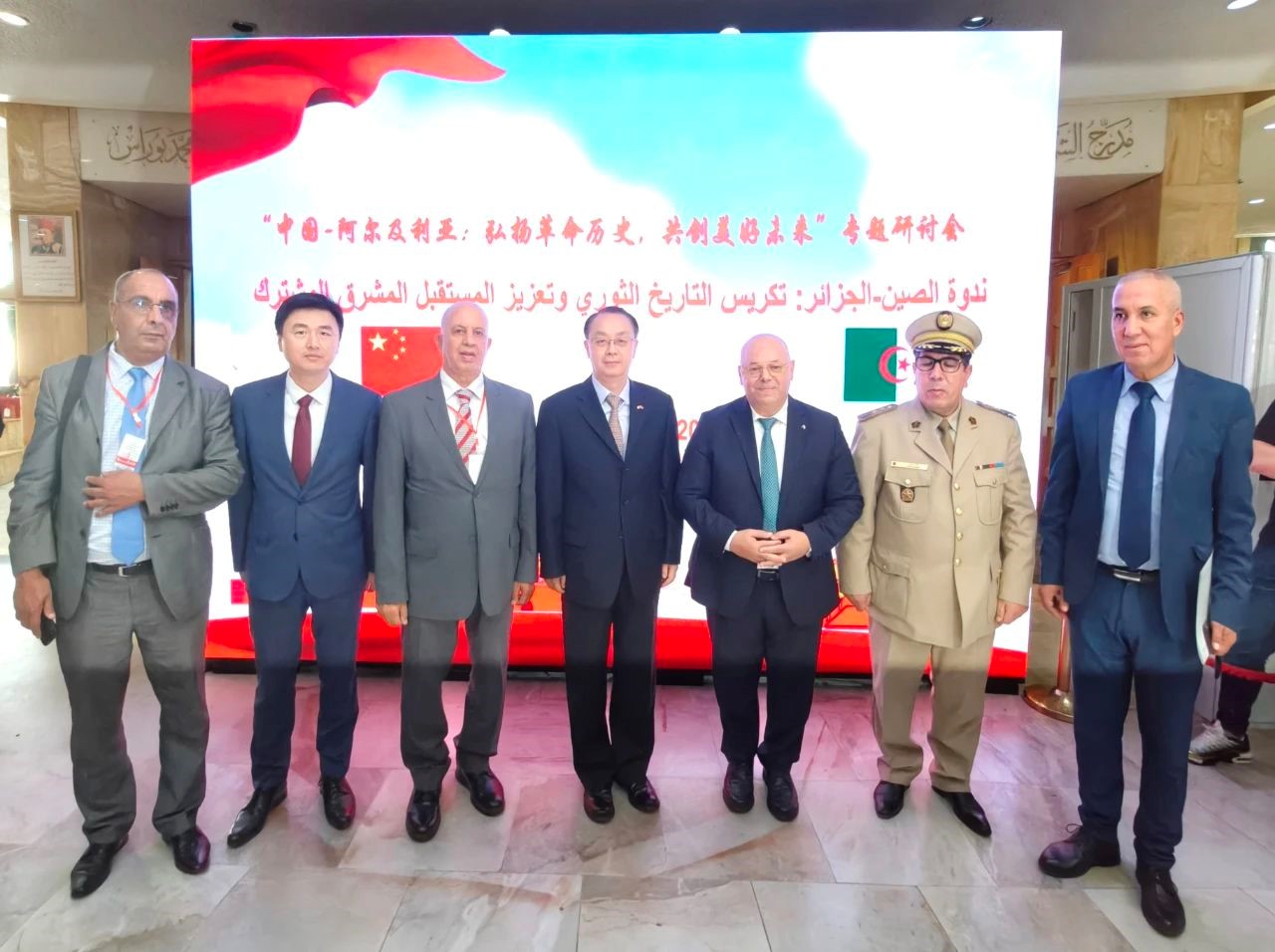
Beijing Touts Malaria Victory in African ‘Discourse Power’ Push
Beijing Touts Malaria Victory in African ‘Discourse Power’ Push
Executive Summary:
- Beijing cannot and will not replace the United States’s former role in overseas aid, but it will seize opportunities to portray itself as playing a leading role where doing so aligns with its own programmatic interests.
- The PRC views international aid differently to the West, and tends to concentrate funds strategically, such as in countries rich in natural resources.
- The People’s Republic of China (PRC) eradicated malaria domestically in 2021, something that it is now highlighting in international media in an effort to enhance its “discourse power” and frame itself as a model for “Global South” countries.
World Malaria Day 2025 fell on April 25 (WHO, accessed May 9). Throughout most of the Western world, the initiative to raise awareness about the deadly disease—which claims an estimated 1 life every minute—was largely ignored. The People’s Republic of China (PRC), meanwhile, took note. An article published in the People’s Daily, the mouthpiece of the Chinese Communist Party (CCP) Central Committee, discussed the state of malaria prevention today and highlighted the PRC’s contributions. It noted that the PRC has provided medicine, technological support, assistance building anti-malaria centers, training, and other contributions to global efforts. Most notably, the country has supported a Collaborating Centre for Research and Training on Malaria Elimination in Jiangsu province, providing training to 86 countries and over 2,000 staff (People’s Daily, April 28).
The PRC currently faces difficult choices in its approach to assisting global public health programs. In the context of the dismantling of the U.S. Agency for International Development (USAID), there are opportunities for Beijing to promote its achievements in this area of global governance. Doing so, however, presents risks, as it will invite requests for contributions that Beijing is unwilling to make. While keen to notch diplomatic wins and buttress its “discourse power” or “right to speak” (话语权) in the world, Beijing cannot and will not replace the United States’s former role in overseas aid. [1] As a case in point, the People’s Daily article made sure to point out that “insufficient funding is the main obstacle to malaria prevention” (资金不足是全球疟疾防治的主要障碍), an implicit rebuke of recent U.S. cuts to health assistance programs overseas.
Telling China’s Story Not So Well: Recent Coverage of Malaria Eradication
In Xi Jinping’s “new era” (新时代), the PRC has felt aggrieved that its rise in comprehensive national power has not been accompanied by an equivalent rise in influence in the international system. This, in part, has motivated efforts to enhance the country’s “discourse power” alongside projects such as the One Belt One Road (一带一路) initiative. It has also informed a more concerted strategy to persuade countries of the “Global South” to support the PRC in international fora.
The PRC sees itself as the leader of the Global South. Although the government does not explicitly frame itself as having a leadership role, this perception comes across in multiple fora through the PRC’s words and actions. A December 2024 report titled “China’s Vision of the ‘Global South’ and the way Forward for the Development of Cooperation in the ‘Global South’ (中国的“全球南方”观与“全球南方”合作发展前瞻) by government think tank the International Cooperation Center (ICC; 国际合作中心/国合中心) makes this clear. It critiques other countries who seek to claim a form of leadership role in the Global South, such as India, and those who it sees as trying to engage to the exclusion of the PRC, such as the West. It also argues that questions of leadership should be “downplayed” (淡化). At the same time, the final section of the report is titled “China Leads the ‘Global South’s’ Development Strategy” (中国引领“全球南方”发展方略), and states that implementing the PRC’s three global strategies are key “both to bringing tangible development dividends to the countries of the Global South, but also to injecting new vitality into the building of a community of common destiny for humanity” (不仅为“全球南方”国家带来了实实在在的发展红利,也为构建人类命运共同体注入了新的活力) (ICC, October 10, 2024). [2]
The PRC sees its global health efforts as an important part of its bid to enhance its “discourse power” (Aisixiang, December 28, 2023). Malaria prevention work provides a useful case study to illustrate how the PRC uses its presence in Africa to achieve this end and, as a result, enhance its standing in the international system. Coinciding with World Malaria Day, the BMJ (formerly the British Medical Journal), one of the world’s oldest medical journals, published a collection of articles under the title “Malaria control lessons from China” (BMJ, accessed May 9). A collaboration with the Chinese Center for Disease Control and Prevention in Beijing, these articles are part of a broader strategy by which the PRC pitches itself as a model for emulations and positions itself as a fellow developing country (unlike the former colonial powers in the West) to more convincingly advocate for a leadership position among “Global South” countries (BMJ, accessed May 7).
The collection highlights the PRC’s recent, impressive efforts to eradicate malaria, which it achieved in 2021 (BMJ, April 22). One article, co-authored by a researcher at the Chinese Academy of Sciences, highlights a series of malaria control projects that the PRC has run with African countries since 2000. In a brief overview of the PRC’s own experience, Mao Zedong’s 1952 “eliminate the four pests” is cited as a positive public health endeavor (BMJ, April 22). Scholars frequently view this campaign as contributing to ecological imbalances that led to the Great Famine (三年大饥荒) in the years 1958–1961. The policy-induced deaths of tens of millions of one’s own citizens arguably does not constitute a public health victory, nor is it worth emulating. These contextual details, however, go unmentioned in the BMJ article.
A letter written in response to—and published alongside—the collection also cites the “four pests” campaign and the PRC’s “dynamic zero-COVID” policy positively. It goes further, arguing that “China’s traditional culture” emphasizes “the Confucian idea of a continuum between family and state, reinforcing a sense of collective responsibility.” This “synergy between state governance and China’s collectivist culture” is then promoted as a model that is “relevant for African countries” (BMJ, May 2). That this collection in the BMJ is part of a centrally directed effort to enhance the PRC’s discourse power is made explicit in a Global Times article published the following day. Headlined “English Media: China’s Eradication of Malaria is an Important Experience for the World” (英媒:中国消除疟疾为全球提供重要经验), it warns that “if the United States’s relevant policies change [i.e. if funding is cut], this could deal a severe blow to global health, reversing the last 20 years of hard-won results” (如美国相关政策改变可能对全球卫生合作造成冲击,过去20年来之不易的成果将发生逆转) (Global Times, April 23).
PRC Aid is Based on Political Considerations
The PRC touts its wins in the domain of international aid loudly and excoriates U.S. retrenchment just as vociferously. Lost in the discourse is the PRC’s vastly inferior support for international development. Part of the problem is that the PRC’s mindset behind its engagement with “Global South” countries is not geared toward aid funding, according to a UN official (author interview, May 7). The country does not systematically report its foreign development assistance activities to established international channels, which makes tracking its contributions difficult. According to the country’s 2021 foreign aid white paper, however, total foreign aid from the PRC in 2013–2018 reached around $42 billion—just 14.6 percent of U.S. spending in the same period (State Council Information Office, January 2021; Brookings, March 11). Its aid agency, the China International Development Cooperation Agency (CIDCA; 国家国际发展合作署), was only spun out from the Ministry of Commerce in 2018, and its work remains dependent on that ministry, as well as on the Ministry of Foreign Affairs, for policy direction.
PRC reluctance to fund foreign aid is also reflected in its overseas lending more broadly. The PRC’s financing has become less concessional and more targeted to commercial sectors in recent years, indicating a reduced willingness to shower money on big-ticket infrastructure projects underwritten by long-term loans from policy banks. This is also reflected in the rhetorical pivot in “One Belt One Road” discourse to focusing on “small and beautiful” (小而美) projects (ODI Global, October 2024; Belt and Road Portal, accessed May 9). Beijing’s hesitation when it comes to contributing to global public goods is also reflected in its payments to the World Health Organization (WHO). It pays its “assessed contributions” begrudgingly and reluctantly, complaining that the process for calculating the amount is non-transparent and unfair” (author interview with UN official, May 7). (In another indication of the subjugation of contributions to global goods to political preferences, the PRC also blocks Taiwan from attaining WHO membership).
In Africa, the PRC is likely to be cautious about stepping up where the United States is pulling back. A researcher at Yunnan University’s International Relations Research Institute makes this point in an article titled “The Truth About U.S. Strategic Contraction in Africa” (美国对非战略收缩的真相). The author does not hold back on his criticism of U.S. actions in Africa, noting that shuttering USAID could lead to millions of people on the continent contracting AIDS, malaria, and tuberculosis, while characterizing reciprocal tariffs as “robbery” (抢劫). He also frames the PRC by contrast as a “reliable friend and trustworthy partner” (可靠朋友与真诚伙伴). Nevertheless, he warns that the PRC must “avoid the illusion of ‘filling the vacuum’” (避免“填补真空”错觉), noting that the PRC attempting to step up in this way could lead to a backlash if it fails. He argues instead for a more refined policy of deepening cooperation with Africa through targeted efforts on economic and people-to-people ties (Aisixiang, April 28). These include expanding the country’s footprint in biotech, vaccines and other pharmaceuticals, and additional areas that align with commercial interests. This approach will be familiar to PRC policy makers—studies have shown that PRC health funding to African countries is positively correlated with those countries that are rich in natural resources, such as Kenya, Zambia, Mauritania, and the Republic of Congo. [2]
Conclusion
U.S. health assistance programs in Africa, even if cut dramatically, may remain higher than the PRC’s contributions. The PRC will nevertheless work opportunistically to discredit Western efforts and promote its own agenda. According to a UN official, CIDCA workers at a clinic in Tanzania to which USAID recently cut funding have pasted a “China Aid” sticker directly on top of the USAID logo on the clinic’s wall (author interview, May 7). This image perhaps best encapsulates the PRC’s zero-sum approach to development assistance, and supports the sense that aid is apportioned more in support of strategic objectives than in pursuit of global public goods.
Notes
[1] The CCP sees “discourse power” as a means of asserting its influence in the international system at the expense of that of the United States (Guangming Daily, January 15, 2015).
[2] Dolan CB, Malik AA, Zhang S, Mao W, McDade KK, Svoboda E, et al. (2023) Chinese health funding in Africa: The untold story. PLOS Glob Public Health 3(6): e0001637. https://doi.org/10.1371/journal.pgph.0001637


